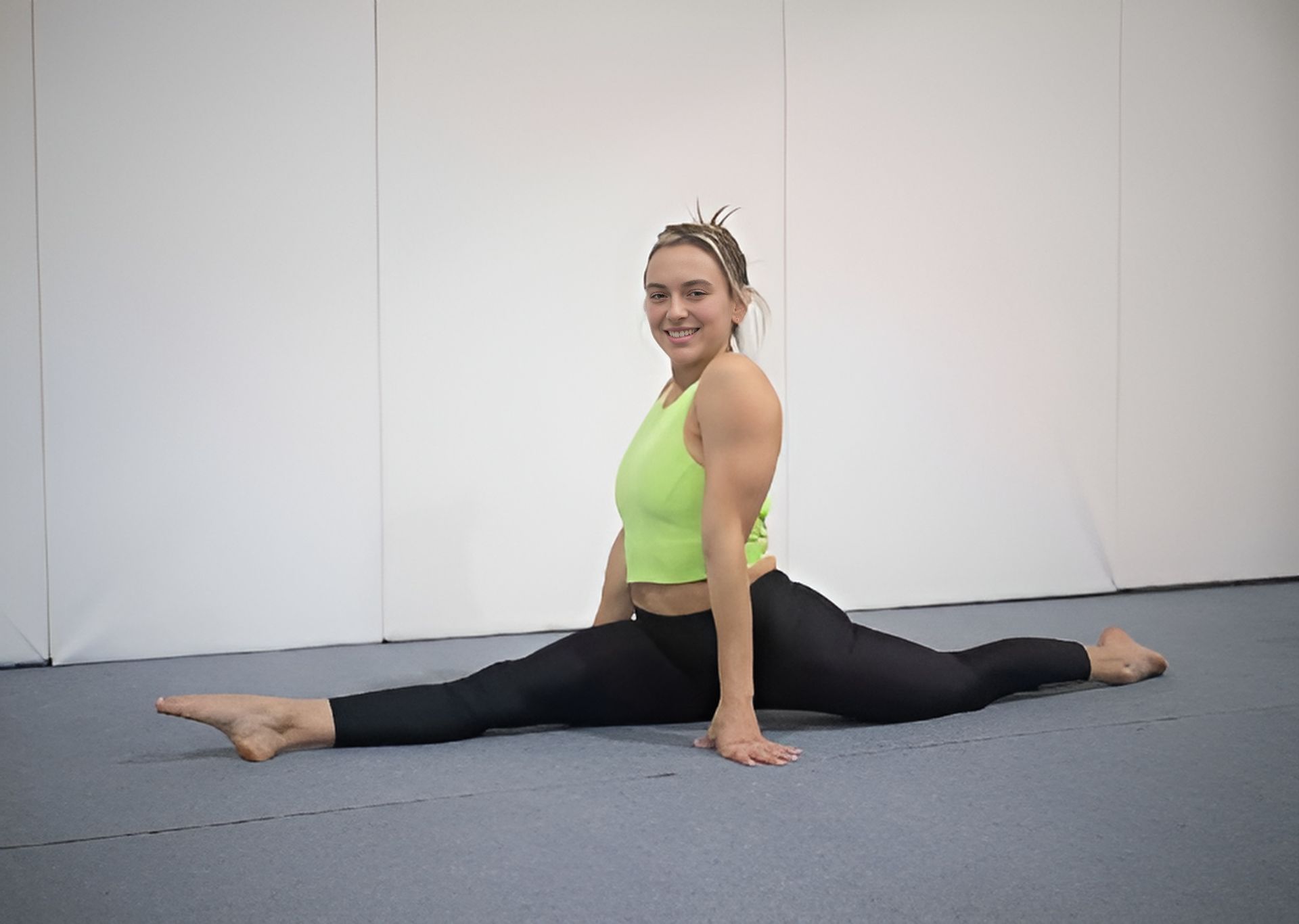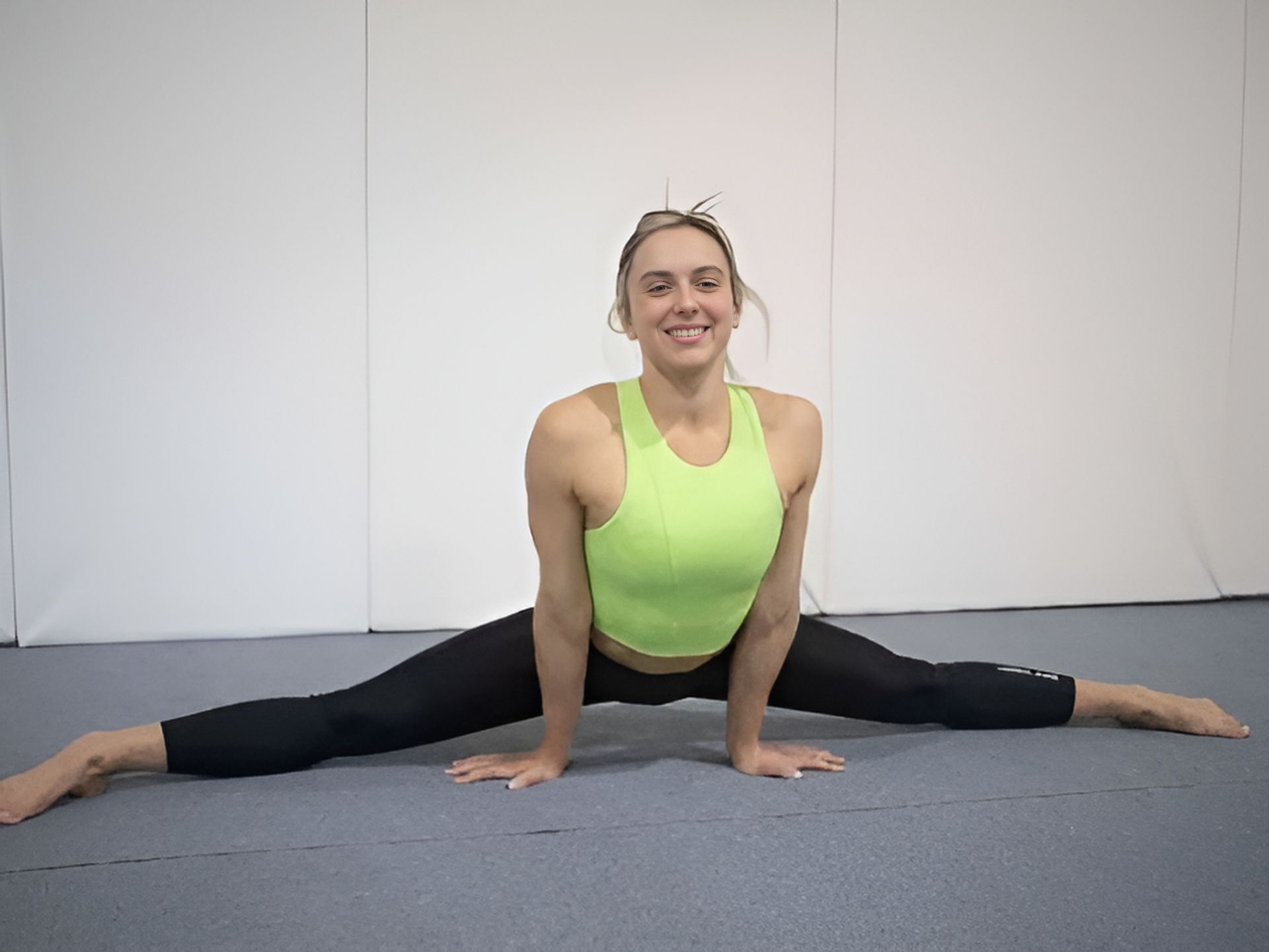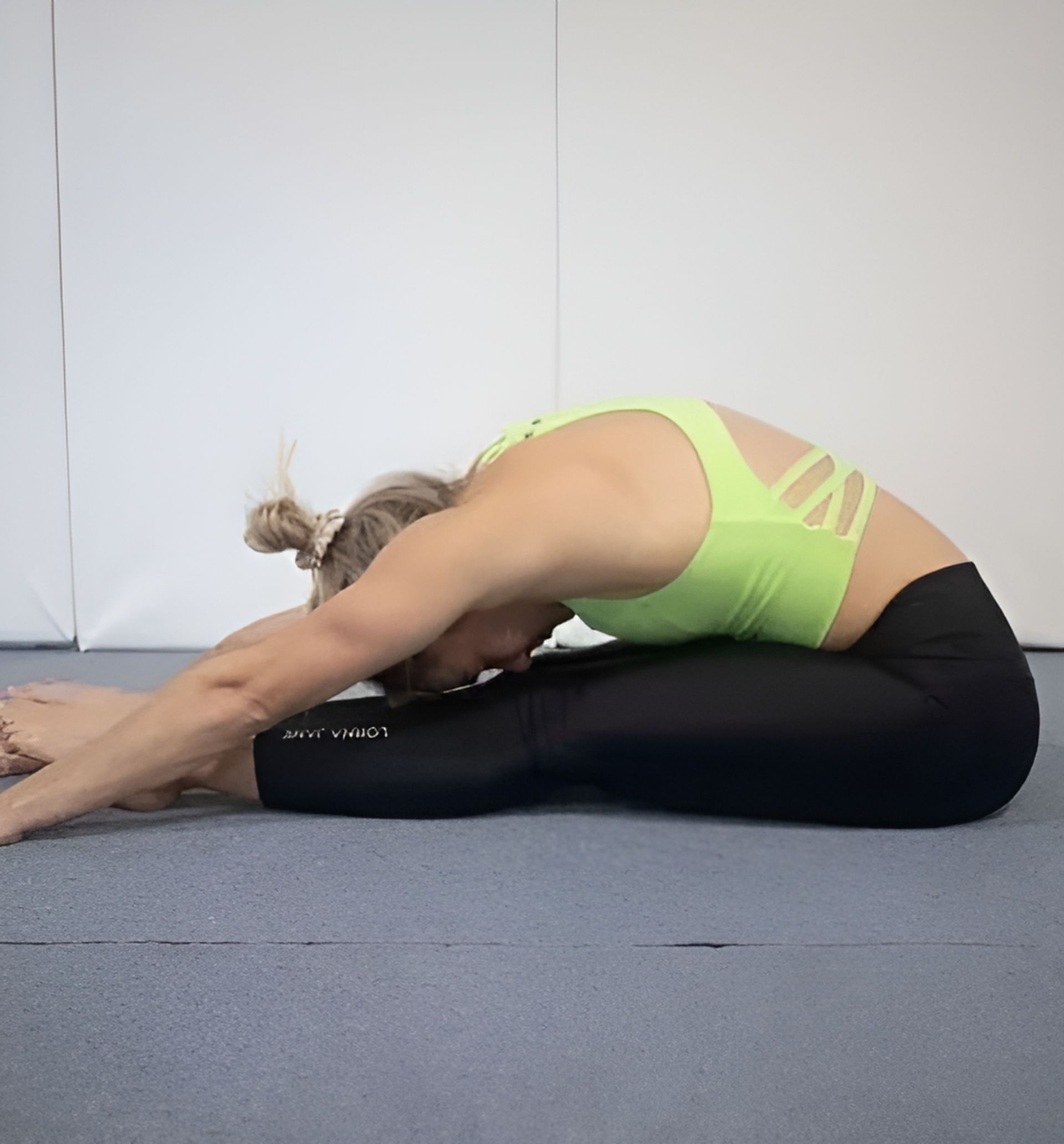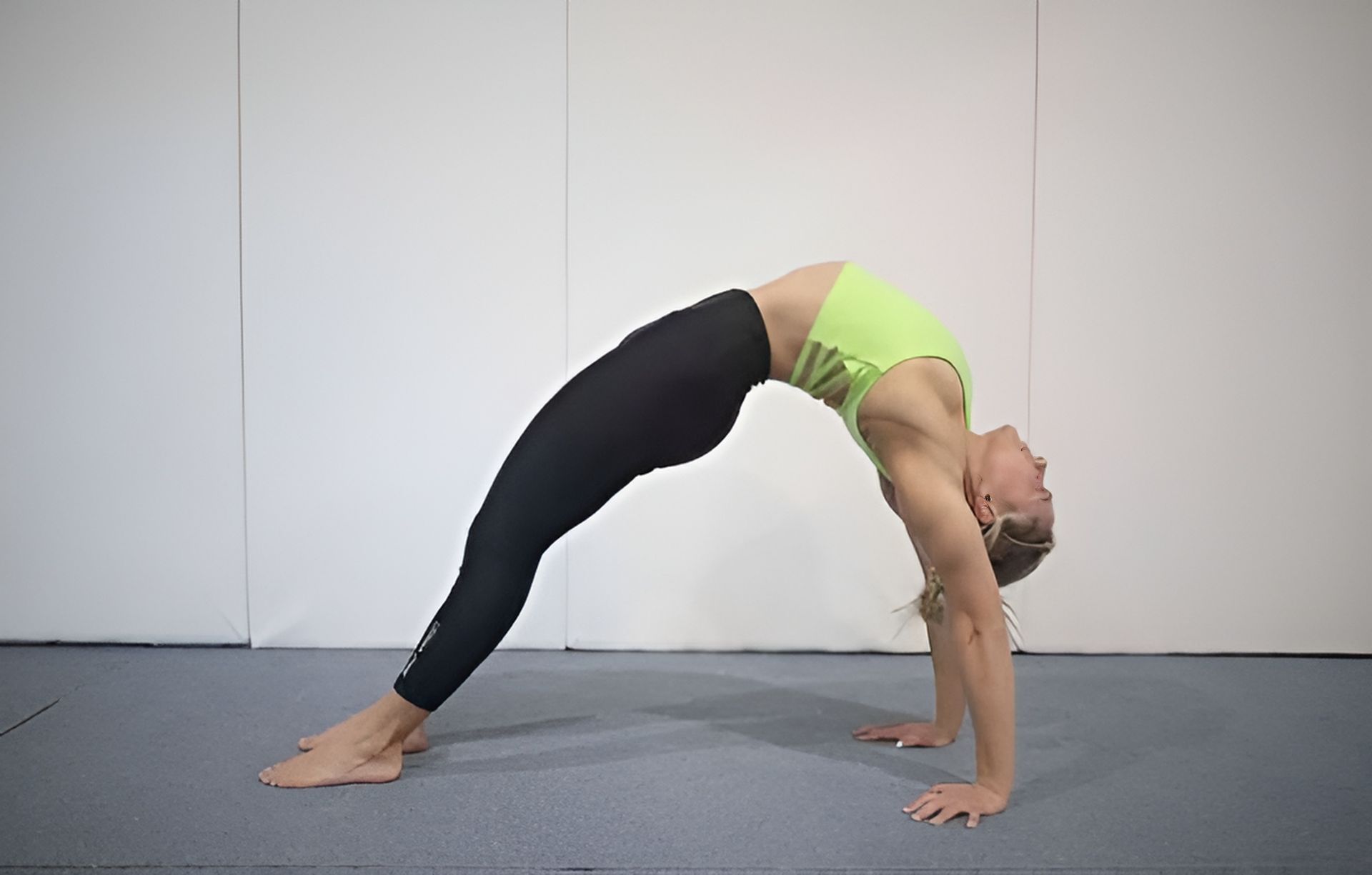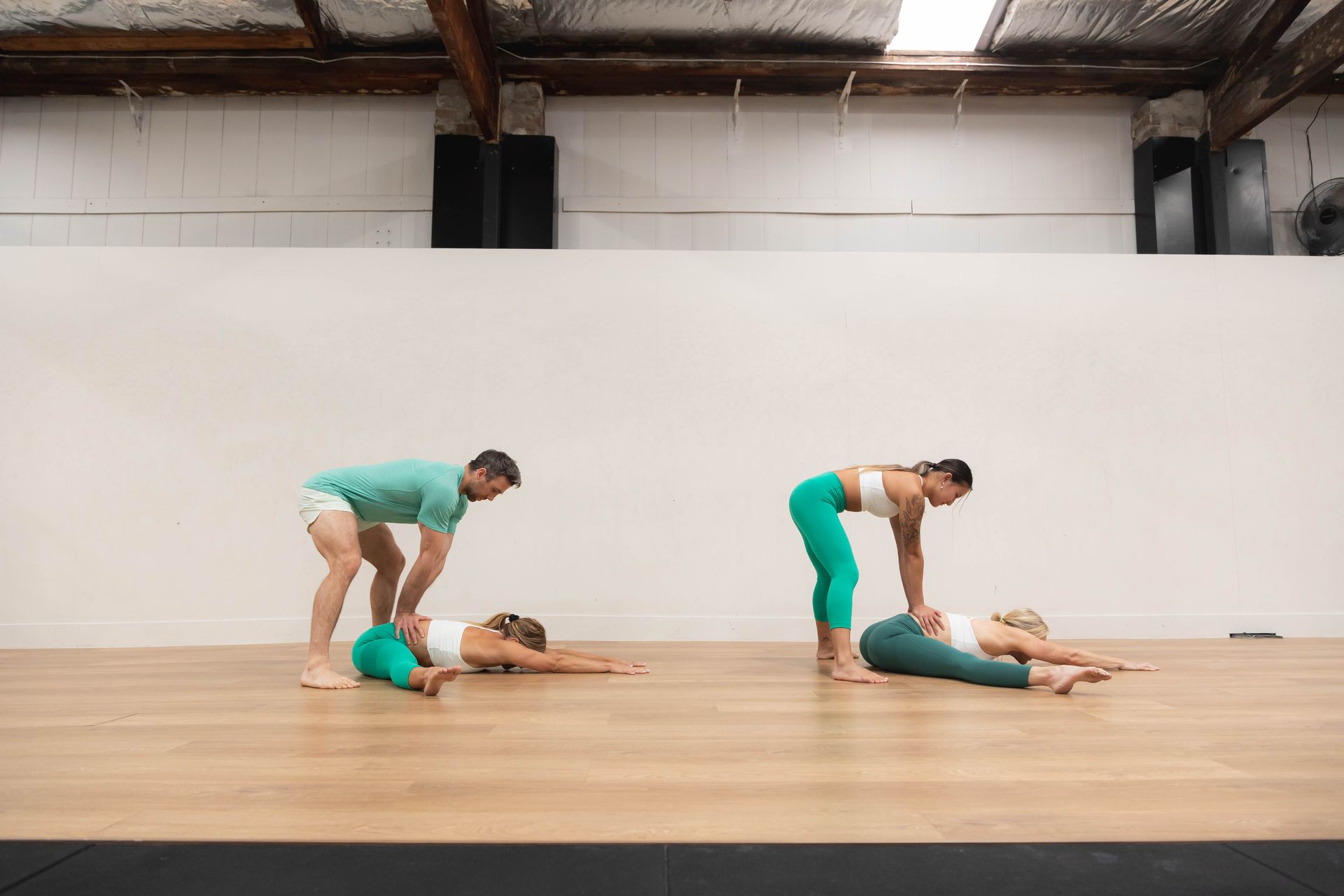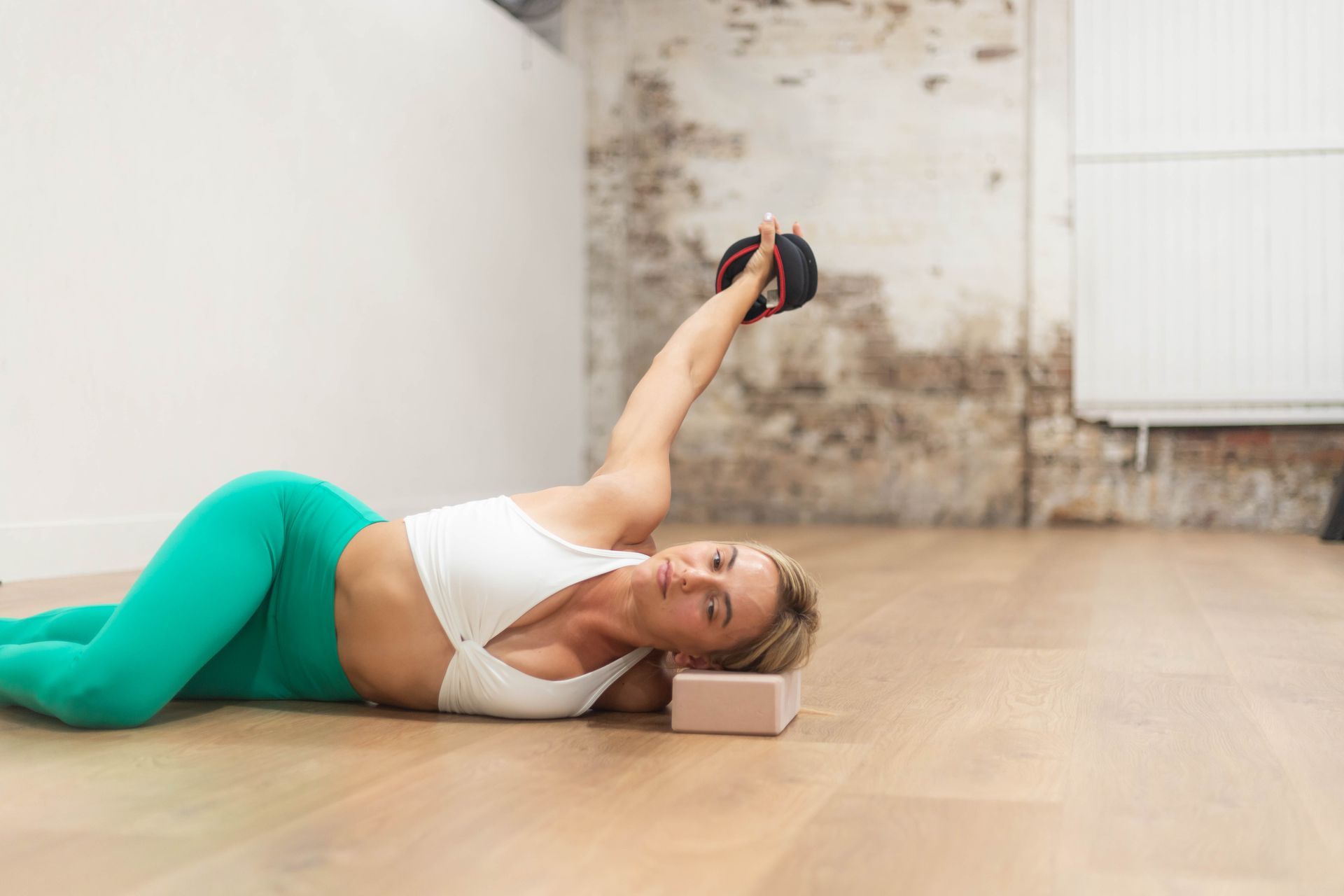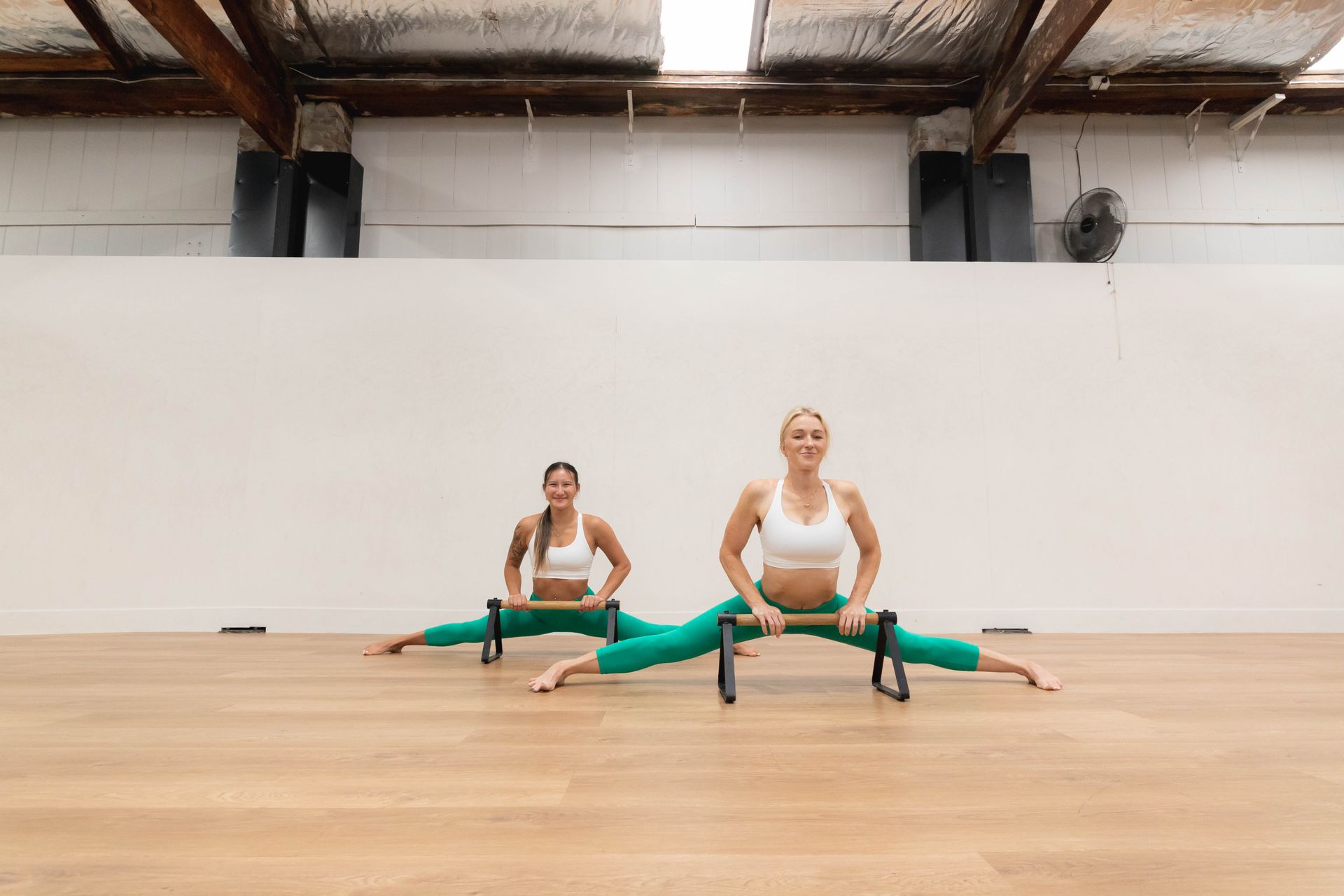Flexibility classes Sydney
Explore the best gymnastics experience for adults at one of Sydney's Highest rated gyms, where our members achieve unmatched results.
Our gym is not only family run, but is such an encouraging environment that everyone becomes family.
What is flexibility?
Flexibility is the ability to move your joints and body through a range of motion. It varies for each individual based on their goals. Muscle ups need good shoulder extension and handstands need scapular flexibility.
Our flexibility classes will help you regain control over your body, allowing you to move more freely like humans evolved to do. We should be able to take our arms overhead easily, hang from a bar with our body weight, pick things up off the floor easily. All these ranges of motion have decreased significantly due to the reality of the modern living.
What happens in the flexibility class?
It starts with a specific warm up. The range that we are targeting in the class will be warmed up effectively. Next we will be targeting our end ranges of movement with specific strength work. For example, for the front split, we will do strength work for the hip flexors, glutes and hamstrings in the shortening range.
Skin the cat in our flexibility classes
This exercise demonstrates great shoulder flexibility and strength by extending the arms behind the gymnast while hanging from the rings or bar. The gymnast lifts and rotates their body over the head, maintaining grip and lowering until the feet are near the ground before returning to the starting position.
In our classes we progress our student towards this movement gradually and carefully to ensure an adequate amount of strength and flexibility is achieved. The Progressions can be done with hands on the floor behind the gymnast, or hands on the wall behind the gymnast. Other variations include standing in a forward fold position with the arms coming up into shoulder extension.
Benefits of our flexibility classes
UNLOCK YOUR BODY'S POTENTIAL
Achieve peak performance with effective stretching
Beyond Boundaries
Static active
Holding a fixed position (eg static) whilst maintaining tension or a contraction (eg active).
Beyond Boundaries
Static passive
Maintain a fixed position with minimal tension. Relax into it as much as possible.
Beyond Boundaries
Dynamic passive
Joints are moving, but muscles are not contracting.
Beyond Boundaries
Dynamic active
Joints are moving and muscles are contracting.
JOIN US TODAY!
Whether you're looking to improve your flexibility, increase your range of motion, or enhance your overall physical well-being, we have a program that's perfect for you. At our facility, we offer a variety of flexibility classes designed to meet your individual goals and abilities. With our expert instructors and supportive community, you'll have all the tools and resources you need to succeed.
Our gym is fully equipped with a dedicated area for flexibility training, complete with stretching mats, props, and other specialized equipment. Whether you're a beginner or an advanced practitioner, our classes cater to all levels of experience. Our instructors will guide you through a series of exercises and techniques that will help you improve your flexibility and achieve your desired results.
If you're interested in joining our Flexibility classes, we invite you to come in for a session. This will give you the opportunity to experience our classes firsthand and meet our experienced coaches and fellow students. We're confident that you'll enjoy our classes and the supportive community that we've cultivated here at our gym.

more flexible and healthier you by joining our Flexibility program
To get started, book a call. Our friendly staff will ask about your level and goals, provide a quote and get you started with the onboarding process.
Frequently asked questions
Got a question? We're here to help.
Why does flexibility matter?
Flexibility plays a crucial role in overall health and fitness, particularly in activities like gymnastics. Improved flexibility enhances joint mobility, reduces the risk of injury, and allows for better performance in various physical activities. In our flexibility classes, we focus on increasing range of motion, relieving muscle tension, and promoting better posture and alignment.
What are the requirements for our flexibility classes?
Our flexibility classes are open to individuals of all skill levels, including beginners. There are no specific requirements to join these classes other than a willingness to learn and a commitment to improving flexibility. Our experienced instructors will guide participants through exercises and stretches tailored to their individual needs and abilities.
How long does this flexibility class go for?
Our flexibility classes typically last between 60 to 75 minutes, providing ample time for warm-up, targeted stretching exercises, and cool-down. This duration allows participants to focus on various muscle groups and achieve a balanced approach to improving flexibility.
What will we be doing in this class?
In our flexibility class, participants will engage in a series of dynamic and static stretching exercises designed to improve flexibility and mobility. Our instructors will lead the class through a variety of stretches targeting different muscle groups, emphasizing proper technique and alignment. The class may also include elements of yoga and Pilates to enhance flexibility and promote relaxation.
What are some of the beginners doing in this flexibility class?
Beginners in our flexibility class will start with gentle warm-up exercises to prepare the body for stretching. They will then progress through a series of basic stretches focusing on major muscle groups such as the hamstrings, quadriceps, hips, shoulders, and back. Our instructors will provide modifications and adjustments to accommodate varying levels of flexibility and ensure a safe and effective workout for all participants.
What are some of the advanced people doing in this class?
For advanced participants in our flexibility class:
Deep Stretching: Advanced participants focus on deeper stretches to increase flexibility further.
Advanced Yoga Poses: They practice challenging yoga poses like backbends and inversions to improve flexibility and balance.
Targeted Mobility Work: Advanced participants perform dynamic movements to enhance joint mobility and functional range of motion.
Progressive Overload: They use props like resistance bands to gradually intensify stretches and stimulate flexibility gains.
Mindfulness and Breathwork: Incorporating mindful awareness and breathwork deepens stretches and enhances relaxation.
These elements help advanced participants push their limits safely and continue progressing in their flexibility journey.

